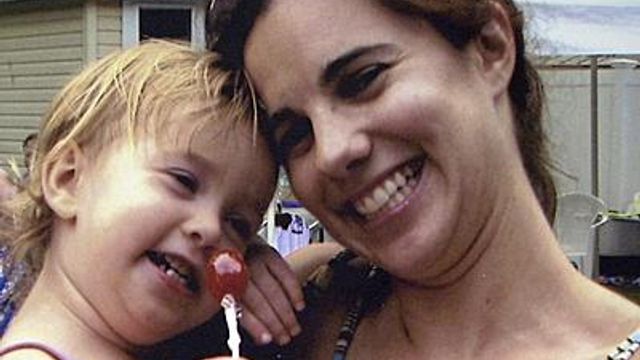DNA evidence didn't match but couldn't clear Jason Young
Scientists testified Wednesday in the trial of a Raleigh man accused of killing his wife that they were able to find partial DNA matches on evidence collected from the couple's home and other areas relevant to the investigation
Posted — UpdatedBut defense attorneys pointed out during their questioning that the matches weren't definitively those of their client and noted that DNA testing of other evidence returned samples that didn't match him.
Jason Young, 37, is on trial for first-degree murder in the beating death of Michelle Young, 29, who was found in the bedroom of the couple's home on Nov. 3, 2006. If convicted, he faces life in prison.
Prosecutors say Jason Young killed his wife because he didn't want to be married and felt as if he were rushed into marriage in 2003 when the couple found out she was pregnant with their first child.
Defense attorneys admit that their client wasn’t a good husband but insist that he did not kill his wife. Forensic evidence, they say, proves it and actually points to someone else, possibly two people.
Michelle Hannon, a DNA analyst with the State Bureau of Investigation Crime Lab, testified that she tested a root from a piece of hair taken from the couple's bedroom that didn't match DNA profiles of either Michelle Young or Jason Young.
She also tested two cigarette butts – one that defense attorneys say was found in the garage and another found in the doorway leading into the kitchen of the Young home – that contained two different sets of DNA from unknown males.
A partial DNA profile from a jewelry box in the couple's bedroom also excluded Jason Young as a contributor to that sample.
The only definitive DNA matches to Jason Young that were found were from a piece of sheet rock taken from the couple's bedroom wall and semen found on the bed sheet.
Special agents with the SBI also testified that two shoe impressions found on pillows were determined to be a pair of size-10 Franklin athletic shoes and a pair of discontinued Hush Puppies-brand shoes.
Further DNA testing on what has been described as a red lava rock found at a Hampton Inn in Hillsville, Va., contained a partial DNA profile that couldn't exclude Jason Young, said Shawn Weiss, a DNA analyst with LabCorp.
Tests found that the same sample could potentially belong to 1 in every 79 Caucasian males, Weiss said. That indicated to him that it was nowhere near to being a match to Jason Young's DNA.
Defense attorneys for Jason Young, a medical equipment salesman, maintain that he was traveling for business and was at the Hampton Inn when his wife was killed.
Prosecutors, however, say that he drove three hours from the hotel to Raleigh, killed his pregnant wife and then drove to Clintwood, Va., where he met with Jennifer Sproles, a medical records director at Dickinson Community Hospital.
She testified that Jason Young was about 30 minutes late for the meeting and that he appeared normal.
"He might have been a little bit nervous, but I thought it was him just wanting to sell the product," Sproles said.
A hotel employee testified last week that he found a red rock propping open an emergency exit door on the morning of Nov. 3, 2006, and also noticed that a security camera facing the exit had been unplugged.
A convenience store employee from King, N.C., about 45 minutes from Hillsville, testified that she sold Jason Young gasoline that morning, at a time when he has said he was sleeping in the hotel.
• Credits
Copyright 2024 by Capitol Broadcasting Company. All rights reserved. This material may not be published, broadcast, rewritten or redistributed.






